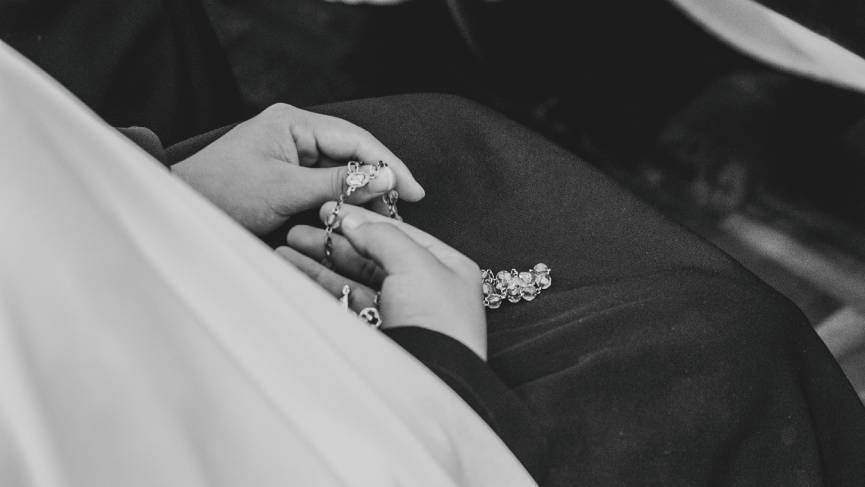Can consecrated life help change the world?

Montreal
Interview with Sister IsaBelle Couillard of the Congregation of the Sisters of Charity of Montreal (the Grey Nuns).
How did you hear the call to become a "grey nun"?
I remember one evening when I was 18. I was in the middle of a crisis of faith, sitting on my bed, talking to Him I no longer believed in. Because how could the God of love, whom I had been taught to pray to and to trust in, how could He allow millions of people to starve to death during the famine in Ethiopia? how could He leave my friend to suffer at the hands of her abusive father? And in the depths of my indignation, I heard God's call: "Come, I need your hands and, above all, your heart to help change the world. I need everyone to hear within themselves my special call. And then my Kingdom will come." And so the seeds of a vocation were sown!
What was it about your foundress’s charism that fascinated you?
St. Marguerite d'Youville never backed down, whether in front of civil or ecclesiastical authorities, from defending those who had been left behind. In her official letters, always written in a tone that was respectful yet firm, she refuted accusations and reminded the authorities of the commitments they had made to her respecting the vulnerable people she had welcomed into her home.
Today, with the encyclical Fratelli tutti, we are called by Pope Francis not to shirk the responsibilities spelled out in the Gospel and not to turn a blind eye to inequality and systematic abuses committed against the weakest among us. He invites us to be women and men who really reach out, going where the ground is sometimes shifting, sometimes disheartening... To live through it, we turn to prayer "from heart to Heart," upheld and supported by the fraternal support of our community.
Throughout your life as a consecrated person, how have you incorporated the charism of your foundress?
Over the years, I have accompanied citizens in finding social housing, in receiving alternative mental health treatment, in establishing spaces for discussing environmental issues. I have worked to obtain freedom for a political refugee and to help reunite her with her family. In order to strike an emotional balance with these demanding activities, I am involved in the Ruche d’art Yéléma, an intergenerational, intercultural and inclusive organization promoting human encounters and the repurposing of used materials through creative activities. With regard to the Church, I lead a small Bible fellowship group, and I am involved in the renewal of the parish of Saint-Bonaventure.
Presently, I am very active in CATHII, the Quebec-based action committee combating domestic and international human trafficking, which was founded by several religious communities in Montreal. Through our advocacy work, we urge the Quebec government to adopt a provincial action plan on behalf of victims and survivors and to support research on a worldwide scale to empower the survivors of human trafficking.
We could have been tempted, in the context of the current pandemic, to slacken our efforts, but that would be to abandon those who have been subject to trafficking and are deeply affected by COVID-19 and the impact on them of the many health measures that have been imposed to counter it. These people remain practically invisible - despite their presence right here in our city - in their capacity as domestic help and migrant agricultural workers, as victims of sexual exploitation, forced marriage, etc.
Forty years after God's first call, which came in response to my youthful 'indignation' at injustice, this is my humble contribution to loosing the bonds of injustice, to undoing the thongs of the yoke, to letting the oppressed go free (Isaiah 58:6).

Comment
Comment
Add new comment